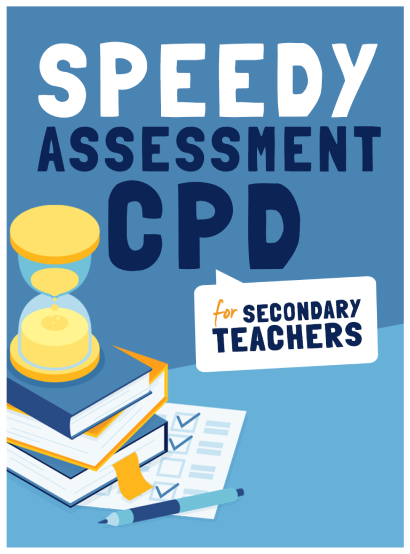Check, achieve, succeed – Can assessment be used to motivate?

Harry Fletcher-Wood discusses how behavioural science has the potential to help students get more out of the assessment process

Every time I handed back her work, Kayawould always ask me the same question – “Am I a Level 4 yet?”
I tried explaining to her that she needed to focus on how to improve, and that her grade would eventually reflect that improvement, but I never quite managed to convince her. Instead, she focused solely on the grade, and that was that.
Assessment is an incredibly powerful tool. It allows us to pinpoint students’ needs, plan to meet them and guide students along the path to improvement. Yet assessment is also fraught, for both teachers and students alike.
Students can often see assessments as a threat – as a chance for teachers to catch them out, rather than help them learn. They may prefer not to try, rather than try and fail. They may see constructive feedback as criticism.
But we can make assessments work better for students. I’ve spent the last three years examining evidence from behavioural science and looking at how we can apply it to teaching.
Consequently, I’ve discovered some powerful techniques that can be used to help students build powerful learning habits and improve the chances students have of benefiting from assessment. Here, I’ll highlight four:
1 | Make it meaningful
If students are to do their best, then they must see an assessment as something that’s personally meaningful to them. The problem we have, however, is that we can’t tailor different assessments for 30 individual students.
One exciting approach I’ve discovered involves giving all students the same task, but prompting them to consider its personal importance. For example, following a classroom experiment, science students were asked how the unit they had just completed could be ‘Useful to you, or a friend/relative, in daily life? How does learning about this topic apply to your future plans?‘
This prompt succeeded in increasing interest in science among those students who didn’t expect to do well. The students as whole subsequently achieved higher grades when compared to a control group who only reviewed the topics.
The takeaway from this would seem to be that it’s well worth prompting students to think about why a topic and assessment matters to them before completing it.
2 | Encourage effort, highlighting the norm
People young and old will tend look to their peers for cues as to how to behave. Whether everyone’s working hard or no one is, few students will want to do the opposite.
We can harness this tendency in a way that encourages students to see assessments as something that’s beneficial to them. We could, for instance, highlight the following:
- Effort: “It’s great to see everyone so focused.”
- Technique: “I’m glad to see so many of us carefully laying out our working.”
- Progress: “Your answers are so much clearer than last week.”
Highlight and point to all of those things you see going right, so as to encourage students to join in, or to keep going if they’re already on the right track.
3 | Build trust through feedback
Some students will actively reject feedback, perceiving it as a threat or a criticism.
One study I came across seemed to suggest a great way of navigating around this. Beside their teacher’s comments, one group of students also received an additional message that read, “I’m giving you these comments because I have very high expectations, and I know that you can reach them.”
This sentiment made students more likely to edit and resubmit their work – thus gaining higher grades as a result, while helping to build their trust in the school. It’s therefore worth emphasising that you have high standards, and that you firmly believe your students can meet them.
4 | Form habits of success
For my book Habits of Success, I carried out a considerable amount of research into the importance of positive habits and habit-forming. Too often, a student’s motivation to learn will be fleeting and somewhat fickle. Today? ‘I’m enthused!’ Tomorrow? ‘I feel lethargic.’
Positive habits help to circumvent and get around this difficulty. All of us will want our students to assume positive habits, such as making plans in advance, working hard throughout the assessments we set them and acting on any feedback they receive. If we can help students form fixed habits such as these, then we won’t need to motivate or nag them to work each time they begin a new assessment. Instead, we can simply rely on them to do their best from the outset.
If students are to make any appreciable progress, assessment is crucial. By infusing our approach to assessment with some the best ideas drawn from behavioural science, we can, I believe, help students form habits of success that will allow them to get more out of assessments – and more out of their wider education as a whole.
Harry Fletcher-Wood is a former history teacher, now associate dean at Ambition Institute. His book, Habits of Success: Getting Every Student Learning, is available now (£16.99, Routledge); for more information, visit his blog at improvingteaching.co.uk or follow @HfletcherWood.












